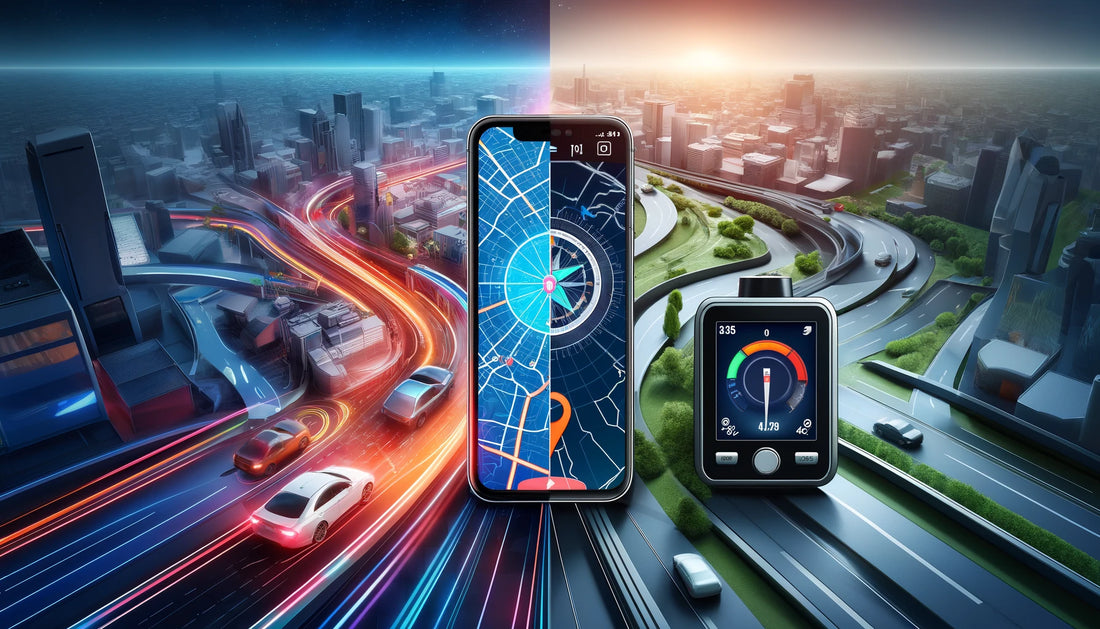In an age where technology has seamlessly integrated into our daily lives, the debate between using dedicated GPS devices like Navpal and smartphone navigation apps for travel is more relevant than ever. For those in the UK, finding the best GPS navigation systems UK offers is crucial for seamless travel experiences, whether it's for daily commutes or adventurous road trips. This blog post delves into the strengths and weaknesses of both Navpal and smartphone navigation systems, helping you decide which is best for your specific travel needs.
Ease of Use and Accessibility

Smartphone Navigation: Smartphone navigation is arguably more accessible for the average user, given the ubiquitous nature of smartphones. With apps like Google Maps or Waze, users can start navigating with just a few taps. The interface is generally user-friendly, and updates are automatic, ensuring you have the latest features and maps without additional cost.
Navpal GPS Navigation: Dedicated GPS devices like Navpal offer a straightforward, purpose-built navigation experience. These devices are designed for one thing: getting you from point A to point B efficiently. They often feature larger screens designed for easy reading and touch input, which can be a boon for drivers who prefer a dedicated device on their dashboard.
Accuracy and Reliability

Smartphone Navigation: The accuracy of smartphone navigation apps is generally high, thanks to their use of real-time data. They excel in providing live traffic updates, rerouting options, and alerts about road conditions, which are invaluable for commuters. However, their reliance on cellular data can be a downside in areas with poor signal coverage.
Navpal GPS Navigation: Navpal and similar best GPS navigation systems UK offerings rely on satellite signals, making them highly reliable even in remote areas where mobile coverage is non-existent. While they may lack real-time traffic data in their basic form, many modern GPS devices now include options to integrate live data via a smartphone connection, bridging the gap between dedicated devices and smartphone apps.
Features and Integration
Smartphone Navigation: Beyond basic navigation, smartphone apps integrate various features like searching for points of interest, integrating with your calendar for address details, and even offering pedestrian or public transport options. Their versatility is unmatched, making them an excellent option for users who need more than just driving directions.
Navpal GPS Navigation: While primarily focused on navigation, many dedicated GPS devices have started to incorporate additional features such as lane guidance, speed camera alerts, and multi-route planning. They may not match the smartphone in versatility, but for straightforward navigation, they often offer a more focused and distraction-free experience.
Cost Considerations

Smartphone Navigation: The primary advantage of smartphone navigation is that it's often free. Most apps don't require a purchase, and you're only paying for the data you use, which might be part of your existing mobile plan. However, for extensive use, especially abroad, data costs can accumulate.
Navpal GPS Navigation: The initial cost of purchasing a dedicated GPS device can be high, but it's a one-time expense. There are no ongoing data charges, and many models offer lifetime map updates for free. For individuals who travel frequently, especially in areas with poor mobile coverage, this can be a cost-effective solution in the long run.
Conclusion
Choosing between Navpal and smartphone navigation comes down to your specific needs, preferences, and travel habits. If you prioritize convenience, integration with other services, and live traffic updates, smartphone navigation apps might be your best bet. On the other hand, if you value reliability in remote areas, a distraction-free interface, and a one-time purchase without worrying about data charges, then a dedicated GPS system like Navpal could be the ideal choice.
In the quest for the best GPS navigation systems UK travelers can rely on, it's clear that both options have their place. The decision isn't about which is objectively better but which is more suited to your personal travel needs and lifestyle. Whether you choose the high-tech integration of a smartphone app or the reliable simplicity of a dedicated GPS device, the most important factor is that it takes you where you need to go, safely and efficiently.

